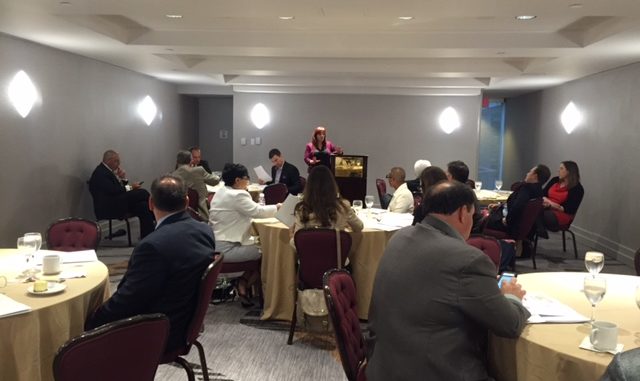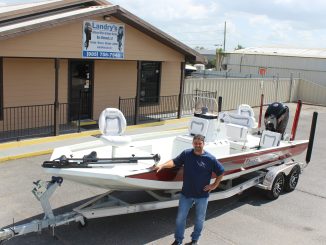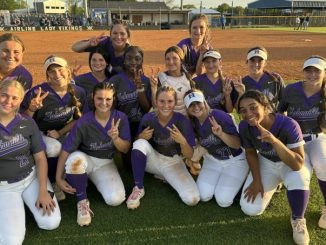
On top of mounting worry that Congress could substantially increase flood insurance rates again next year also comes the fear that private insurers getting into the business will cause them to rise even more.
Flood insurance topped the list of hot topics the River Region Chamber of Commerce raised with the area’s Congressional delegation at its annual DC Fly-in May 17-18 in Washington.
Some 20 chamber representatives met with Congressmen Garret Graves, John Fleming, Cedric Richmond, Charles Boustany, Steve Scalise, Ralph Abraham, and Sens. David Vitter and Bill Cassidy.
“There will be posturing in Congress – which way will it go?” said Kent Lomax, chamber board member. “It’s important to continue communicating with people in Congress to see how this will line up.”
Chamber members also discussed flood protection and levee projects.
Henry Friloux, chamber board member, added meeting with the delegation was significantly important to secure their support in avoiding a repeat of the Biggert-Waters Flood Insurance Reform Act.
The 2012 legislation sent rates skyrocketing for areas in the U.S., including St. Charles Parish’s heavy water areas Bayou Gauche and Des Allemands. The situation became so desperate that residents surrendered their house keys to government officials.
The Federal Emergency Management Agency’s National Flood Insurance Program (NFIP) was created in 1968 to provide homeowners affordable rates.
But FEMA pushed the Biggert-Waters act to address its burgeoning $24 billion debt from hurricanes Katrina and Sandy. It was countered with passage of the Homeowner Flood Insurance Affordability Act of 2014, but nationwide fears are growing as the insurance rates come up for reconsideration next year.
Paul Aucoin, board member of the River Region Chamber of Commerce and executive director of the Port of South Louisiana, praised the Congressional delegation as being “in tune with the River Parishes and is willing to listen and help when they can.”
This was particularly important, Aucoin said, as private flood insurance becomes available in multiple states for residential and non-residential properties, which could replace the more affordable federal NFIP.
Friloux along with Kent Lomax, chamber board member, added private insurers could pose serious issues with rising rates, as well as cherry-picking coverage areas leaving those in most need with unaffordable coverage.
Lomax said a coalition will likely be organized early next year to work on the NFIP “to gain support for something that makes sense for us,” which he said is substantially important with rumblings of substantial rates hikes coming.
Additionally, Friloux said they discussed new industry regulations with the delegation, particularly the U.S. Department of Labor requirements that raised the minimum weekly salary threshold (from $24,000 a year to $47,500) that salaried workers are eligible for overtime pay when they work more than 40 hours a week.
The rule takes effect Dec. 1.
Increasing requirements in ozone and carbon dioxide emissions that Friloux called “job killers” were also addressed.
Aucoin added they sought to ensure funding was allocated to keep the mouth of the Mississippi River dredged at a depth of 55 feet to keep shippers coming to the Port of South Louisiana.
Although fighting back the river’s sedimentation requires continual maintenance, he warned the shrinking river access could pose a literal barrier to sustaining the area’s economic viability, sending shippers elsewhere if they can’t move full capacity of goods.
“That’s bad for us,” Aucoin said, pointing to the 230 miles of river surrounding New Orleans that forms the world’s largest port system.
It’s bad for everyone without intervention, he said, adding that maintaining river depth is a necessary component in keeping maritime shipping viable in Louisiana.
The U.S. Army Corps of Engineers is responsible for keeping the river dredged and navigable.
The issue is at the mouth of the river, where sedimentation is an ongoing, costly concern.
Aucoin added, “The Mississippi River is the most important natural resource in this country – not just the state.”




Be the first to comment